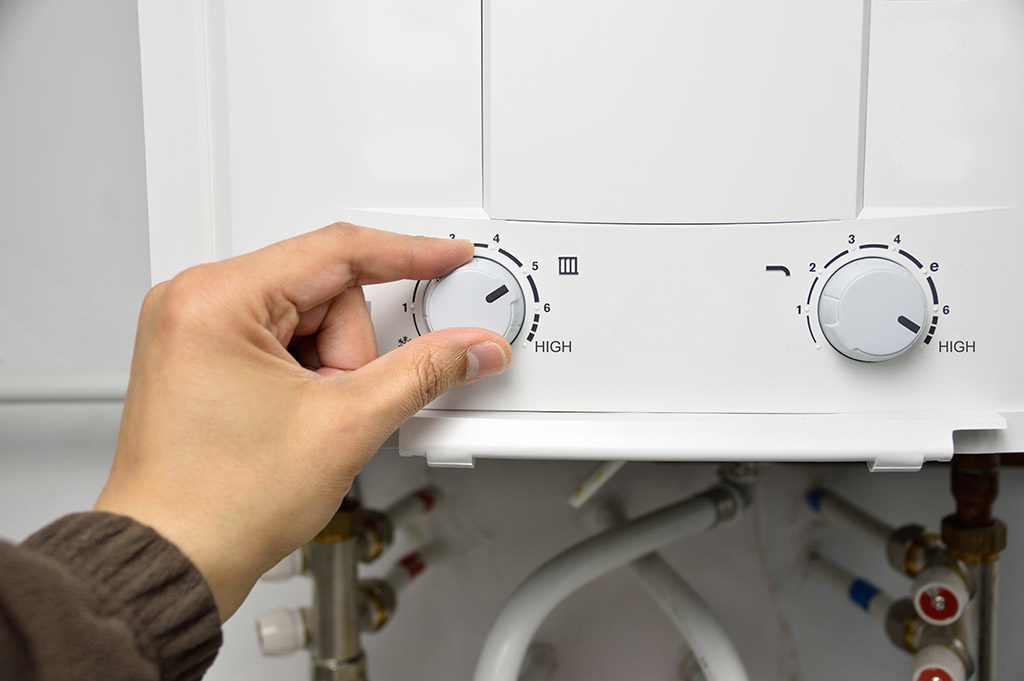Ways to Address the Common Water Heater Emergency Challenges
Ways to Address the Common Water Heater Emergency Challenges
Blog Article
The content following next pertaining to Is Your Water Heater Leaking? is indeed stimulating. Check it out for yourself and figure out what you think of it.

A water heater is just one of one of the most important fundamental devices that can be discovered in a house. With hot water heater, you don't need to experience the stress of home heating water by hand every time there is a need to take a bath, do the laundry, or the recipes. However, there is always a possibility that your hot water heater would certainly break down as with a lot of mechanical devices.
It is important to keep in mind any type of little breakdown and tackle it promptly before things get out of hand. Many times, your water heater starts to malfunction when there is an accumulation of sediments as a result of continuous use. As a preventative measure, routine flushing of your hot water heater is suggested to prevent debris buildup and also avoid functional failure.
Usual water heater emergencies as well as how to manage them
Too little hot water
It may be that the water heating system can not sustain the hot water need for your apartment or condo. You might upgrade your water heating unit to one with a larger capacity.
Fluctuating water temperature level.
Your water heating system could start generating water of various temperatures normally ice scalding or chilly hot. There could be a demand to replace either the heating or the thermostat unit of your water heating unit.
Leaking hot water heater tank.
In this circumstance, you must transform off your water heating system, enable it to cool down, and also meticulously look for the resource of the issue. At times, all you require to do is to tighten up a few screws or pipe links in situations of small leaks. If this doesn't work and also the leak persists, you might need to utilize the solutions of a specialist for an ideal substitute.
Stained or stinky water
When this occurs, you need to understand if the problem is from the tank or the water resource. If there is no amusing scent when you run chilly water, then you are certain that it is your water heater that is damaged. The smelly water can be triggered by rust or the buildup of microorganisms or debris in the water heater container.
Final thought
Some house owners disregard little caution as well as minor faults in their hot water heater system. This only results in further damage and also a possible complete break down of your home appliance. You should take care of your water heater faults as quickly as they come near stay clear of even more expenses as well as unnecessary emergency difficulties.
With water heating systems, you don't need to go through the stress of heating water by hand every time there is a demand to take a bathroom, do the washing, or the meals. It might be that the water heater can not sustain the hot water demand for your apartment. Your water heating unit can start creating water of different temperature levels usually ice cold or scalding warm. If there is no funny smell when you run chilly water, after that you are specific that it is your water heater that is damaged. The odiferous water can be created by corrosion or the buildup of bacteria or sediments in the water heater container.
Common Water Heater Issues and What You Should Do
What Type of Water Heater Do You Have?
Before we begin it’s first important that you identify the type of water heater you have on your property. There are two main types of water heaters out there: conventional and high efficiency.
Both of these types of products typically use either gas or electricity to heat power. There are also solar water heaters that use a thermal collector on the roof or yard to heat the water.
While these models are not as common, they can cut heating costs in half. In this article, we will focus on conventional and high efficiency.
How Do My Electric and Gas Water Heater Work?
Though they look similar, electric and gas water heaters work very differently. It’s important to know their basic function because often problems can be specific to the heating source.
In the electric model, a thermostat on the side of the machine detects the temperature of the water in the tank. When the temperature needs to rise electricity flows to a heating element suspended in the water.
Gas models also use a thermostat device — typically with a mercury sensor at the tip and an additional sensor called a thermocouple. The thermocouple detects whether the pilot light is on and controls the flow of gas.
When the thermostat drops below the appropriate level gas is released which becomes ignited by the pilot light. The flame heats the bottom of the water tank which causes hot water to rise and cold water to drop.
This natural circulation continues until the water reaches the desired temperature. Then, the thermostat triggers the gas control valve to shut off the flow of gas.
What Are the Most Common Issues and How Do You Fix Them?
https://happyhiller.com/blog/common-water-heater-issues-and-what-you-should-do/

I am very curious about The Importance of Water Heater Maintenance and I really hope you enjoyed reading the post. Are you aware of someone else who is interested by Warning Signs You Need Water Heater Repairs? Please feel free to promote it. Thanks for your time. Please stop by our site back soon.
Avoid further plumbing damage; call. Report this page